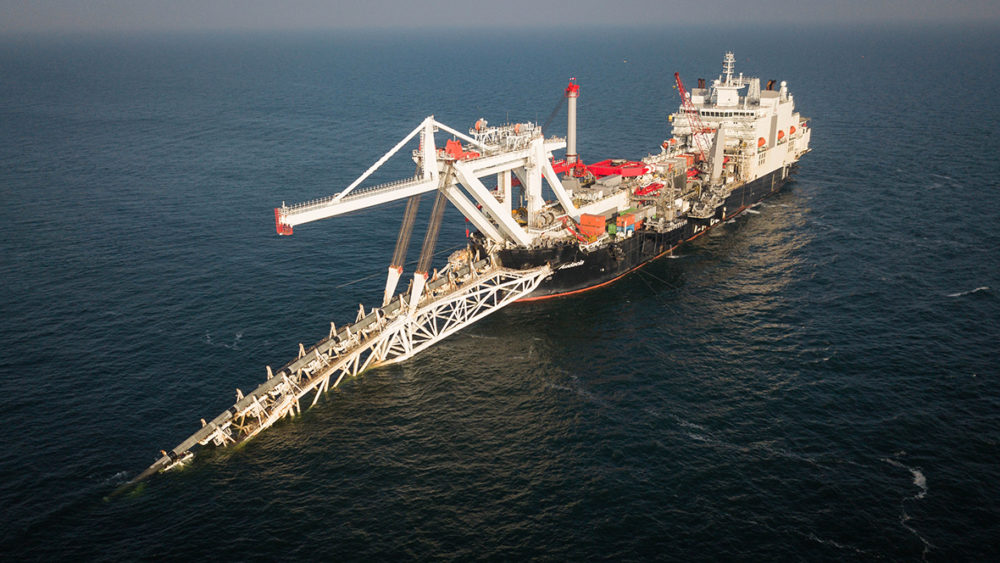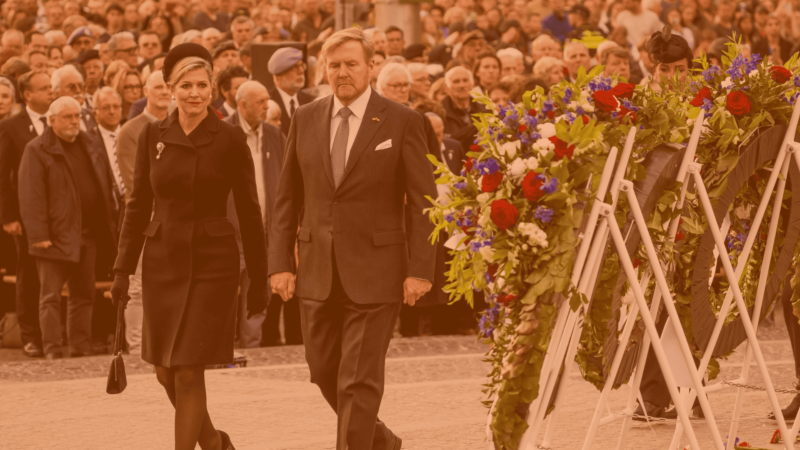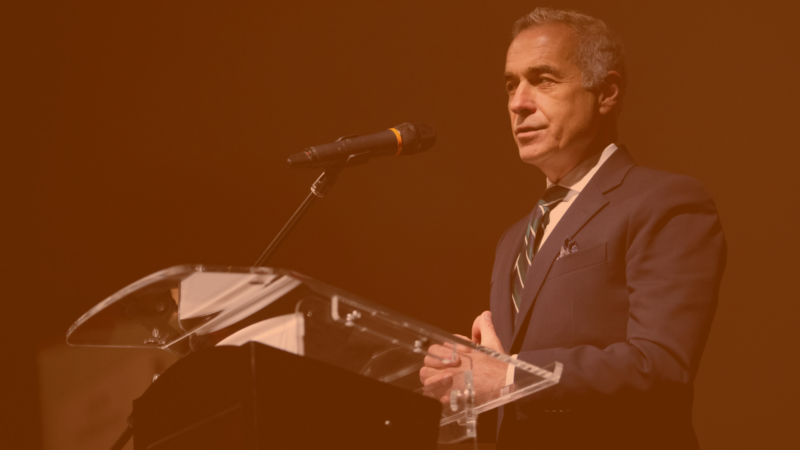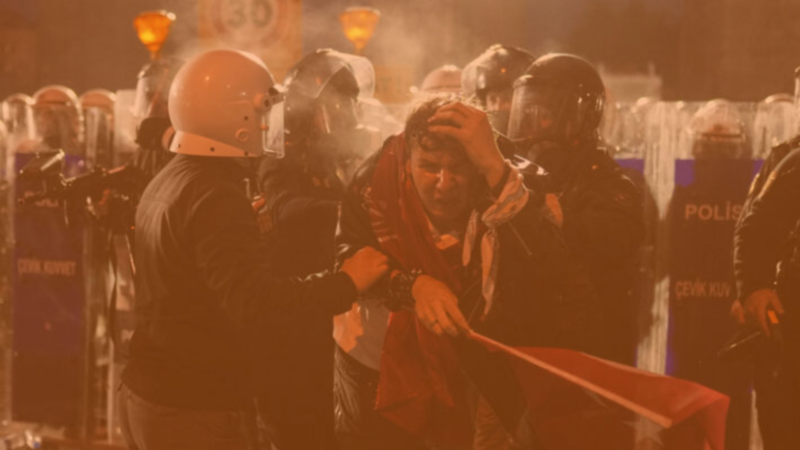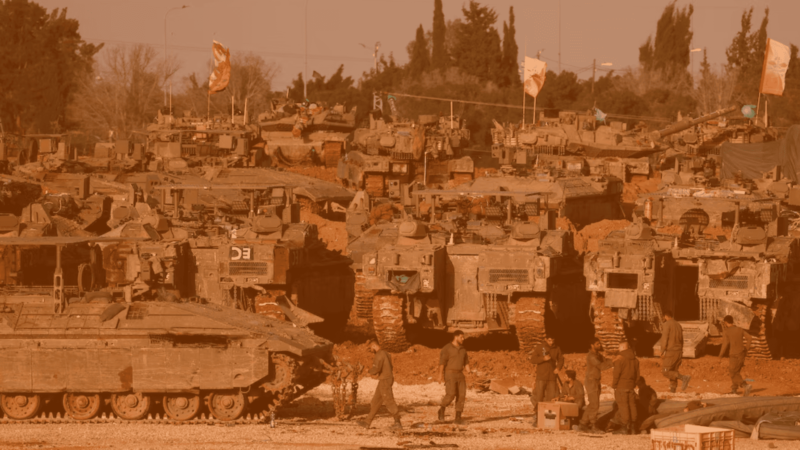How Europe became a battleground in the New Cold War, and DiEM25’s proposal to avoid it.
Late last month, US Secretary of State Mike Pompeo declared that exemptions from financial sanctions would end for European companies constructing Nord Stream II, a Russian gas pipeline.
While the news made little impact in the United States, the announcement exposed the brewing tensions between the Trump administration and Vladimir Putin’s Kremlin over Europe’s gas market.
Nord Stream: “Putin’s pipeline”.
The Nord Stream gas pipeline serves as Russia’s connection, literally, to Europe.
Nord Stream transports gas underwater (through the Nord stream) from Vyborg in Russia to Griesfwald, Germany. Nord Stream II, when complete, will bring additional energy from the Russian city Ust-Luga to Grieswald.
Nord Stream I currently provides 39% of gas usage in the EU. The Nord Stream II pipeline is projected to “double” this capacity.
Leading the construction of the pipeline is Gazprom, an energy company owned by the Russian state. Alignment between Gazprom and the government is publicly discussed — Nord Stream II has even earned the nickname “Putin’s Pipeline”.
Gazprom is the largest energy company in the world — and serves as the “lynchpin” of the Russian economy.
Nord Stream II and Europe.
Russia is not the only country that benefits from Nord Stream. Building contracts for Nord Stream I were shared between European partners France, Italy, the Netherlands, and Germany. United Kingdom companies also contributed to the Russian pipeline: Rolls Royce, for example, supplied turbines.
Germany, providing the end terminal for gas from Russia, acted as the largest European partner in the Nord Stream project. So much so that German energy firms BASF and E.on split ownership of the pipeline with Gazprom.
Nord Stream II ownership includes these partners, as well as Netherland’s Royal Dutch Shell and French energy company Engie.
Eastern Europe has a different view of Nord Stream — specifically the idea of being dependent on Russia for their energy.
Poland and Ukraine have come out as the strongest opponents of the pipeline, while neighbors Czech Republic, Estonia, Hungary, Latvia, Slovakia, Romania, and Lithuania have signed a joint letter objecting to further Nord Stream II construction.
There are suspicions among these countries that any disagreement with Russia could lead to preferential treatment when it comes to sharing energy from Nord Stream II. Many cite the 2006 payment disputes that led to Russia “turning off” Ukrainian gas.
US “Freedom Gas”.
The US has sought to encourage European concerns over Nord Stream II.
Publicly, Trump has framed Nord Stream II as “very bad for NATO” because it makes Europe — specifically Germany — “hostage” to Russian energy. Trump even called German Chancellor Angela Merkel “captive” to Russia in 2018.
Simultaneously, the Trump administration has highlighted the availability of liquefied natural gas(LNG) from the United States as an “alternative” to Russian energy.
Then-Secretary of State Rick Perry, in Brussels announcing the 2018 LNG deal with Poland, portrayed United States LNG as “freedom gas” liberating Europe.
Meanwhile, Secretary of State Mike Pompeo has threatened sanctions as ”punishment” against European companies building Nord Stream II. However these companies were given an exemption when the sanctions were used as a “bargaining chip” during 2017 US-EU trade deal negotiations.
As mentioned, Pompeo announced on July 15th that exemptions are over and that companies should “get out now” or face sanctions.
Gas is heating up a new Cold War.
The actions of the Trump administration toward Russia go beyond words — and Nord Stream II.
Militarily, the Trump administration has been supplying US troops to Poland as a way to “bolster” NATO’s Eastern flank against Russia. This coincides with the lapsing of Cold War treaties limiting weapons arsenals between the two countries.
Cyberattacks, often seen as the 21st-century battleground between nations, have escalated against Russia since Trump came into office; including against the Russian power grid.
These moves, along with the Trump administration enacting 52 sanctions against Russia since inauguration in early 2017, raises the question: is this a new Cold War?
Time for a Green New Deal.
To prevent Donald Trump or Vladimir Putin from bringing the world to the brink of another Cold War nuclear standoff, DiEM25 is committed to a Green New Deal for Europe.
A Green New Deal would not only bear employment from investment in climate-conscious industry. It would also, if not primarily, mean a democratic approach to sharing European energy, and not having to choose between the Russian state nor US private corporations.
Indeed, tensions have been rising over the search for energy resources, such as between Greece and Turkey in the Aegean Sea.
The time is now for a Green New Deal for Europe.
Do you want to be informed of DiEM25's actions? Sign up here





